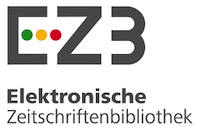La importancia del pensamiento crítico en la administración contemporánea
La importancia del pensamiento crítico en la administración contemporánea
##plugins.themes.bootstrap3.article.main##
Pensar críticamente los fenómenos sociales y económicos contemporáneos constituye un soporte fundamental para que la reflexión académica pueda asumir una posición ética y epistemológica valiosa y acorde a los grandes retos de hoy. Esa postura debe servir, además, para explorar los distintos aspectos institucionales y organizacionales de la vida de las organizaciones y apuntar a entender los diferentes modos en que el sujeto se relaciona en su interior a partir de una serie de prácticas hegemónicas y de resistencia. Esto implica, a su vez, definir y problematizar operativamente una teoría acorde del discurso que sirva para superar ciertas interpretaciones internalizadas e institucionalizadas que usualmente desechan todo tipo de pensamiento que
no sea de corte positivista y funcionalista a fin a los supuestos básicos del capitalismo moderno.
En este sentido se debe reconocer que tradicionalmente los estudios de la administración y las organizaciones han sido abordados como meros servidores y reproductores directos del sistema hegemónico del capital (Cassis and Minoglou, 2005; Hébert and Link, 2009; Murphy, 1986; Nesterov, 2015).
Una posición ética y epistemológica ―de naturaleza crítica en el estudio de las organizaciones― resulta muy útil para problematizar, por ejemplo, el supuesto protagonismo de distintas corrientes teóricas y nociones como la psicología de la felicidad en el trabajo, el coaching y las técnicas de autocrecimiento que propenden por una producción más eficiente y ágil (Vidaillet, 2013).
Downloads
##plugins.themes.bootstrap3.article.details##
Alvesson, M. and Willmott, H. (2003). Studying management critically. New York, USA: SAGE publications.
Arnaud, G. and Vidaillet, B. (2018). Clinical and critical: The Lacanian contribution to management and organization studies. Organization, 25(1), 69-97.
https://doi.org/10.1177/1350508417720021
Cassis, Y. and Minoglou, I.P. (2005). Entrepreneurship in Theory and History: State of the Art and New Perspectives. En Entrepreneurship in Theory and History (pp. 3-21). London, England: Palgrave https://doi.org/10.1057/9780230522633_1Macmillan.
Cederström, C. and Hoedemaekers, C. (Ed.) (2010). Lacan and organization. London, United Kingdom: MPG Books Group.Driver, M. (2009). Struggling with lack: A Lacanianperspective on organizational identity. Organization Studies, 30(1), 55-72.
Driver, M. (2014). The stressed subject: Lack,empowerment and liberation. Organization, 21(1),90-105. https://doi.org/10.1177/1350508412464897
Fotaki, M. and Harding, N. (2013). Lacan and sexualdifference in organization and management theory:Towards a hysterical academy? Organization,20(2), 153-172. https://doi.org/10.1177/1350508411435280
Fournier, V. and Grey, C. (2000). At the Critical Moment:Conditions and Prospects for Critical Management Studies. Human Relations, 53(1), 7-32.
https://doi.org/10.1177/0018726700531002
Grey, C. and Willmott, H. (2005). Critical management studies: A reader. Oxford, United Kingdom: Oxford University Press.
Harding, N. (2007). On Lacan and the 'becoming-ness' of organizations/selves. Organization Studies, 28(11), 1761-1773.
https://doi.org/10.1177/0170840607082225
Hébert, R.F. and Link, A.N. (2009). A history of entrepreneurship. London, England: Routledge. Hoedemaekers, C. (2010). 'Not even semblance':Exploring the interruption of identification with Lacan. Organization, 17(3), 379-393.
Johnsen, R. and Gudmand-Høyer, M. (2010). Lacan and the lack of humanity in HRM. Organization, 17(3), 331-344. https://doi.org/10.1177/1350508410363124
Jones, C. and Spicer, A. (2009). Unmasking the entrepreneur. Cheltenham, United Kingdom: Edward Elgar publishing. https://doi.org/10.4337/9781781952689
Murphy, A.E. (1986). Richard Cantillon. Entrepreneur and economist. Oxford, United Kingdom: Clarendon Press.
Nesterov, D. (2015). History of Microsoft. New York, USA: SUNY State University.
O'Doherty, D. and Willmott, H. (2001). Debating Labour Process Theory: The Issue of Subjectivity and the Relevance of Poststructuralism. Sociology, 35(2), 457-476.
https://doi.org/10.1177/S0038038501000220
Sköld, D.E. (2010). The other side of enjoyment: Short-circuiting marketing and creativity in the experience economy. Organization, 17(3), 363-378.
https://doi.org/10.1177/1350508410363119
Stavrakakis, Y. (2010). Symbolic authority, fantasmatic enjoyment and the spirits of capitalism: Genealogies of mutual engagement. En Cederström, C. and Hoedemaekers, C. (Ed.), Lacan and organization (pp. 59-100). London, United Kingdom: MPG Books Group.
Vanheule, S., Lievrouw, A. and Verhaeghe, P. (2003). Burnout and intersubjectivity: A psychoanalytical study from a Lacanian perspective. Human Relations, 56(3), 321-338. https://doi.org/10.1177/0018726703056003614
Vidaillet, B. (2013). Book Review: Bénédicte Vidaillet reviews Lacan and organization. Organization, 20(2), 324-327. https://doi.org/10.1177/1350508412455289
Willmott, H. (1992). Critical management studies. New York, USA: SAGE publications.



































